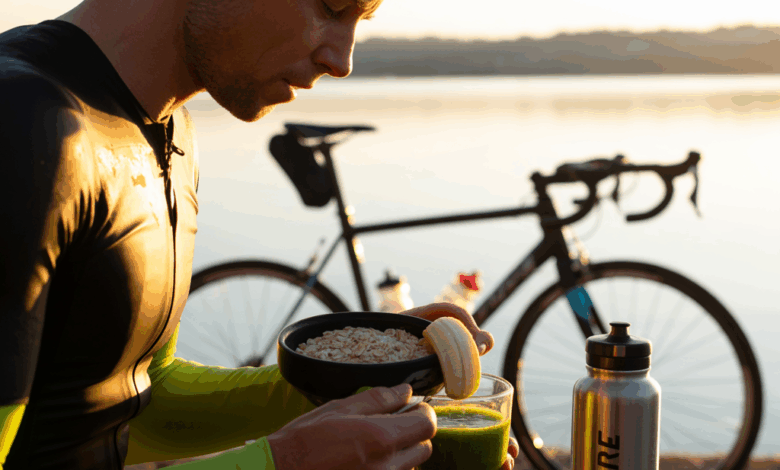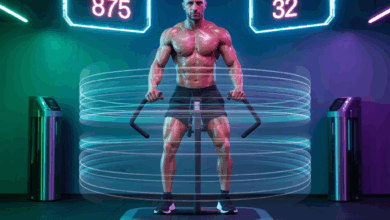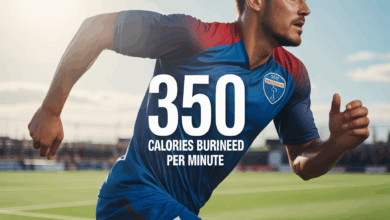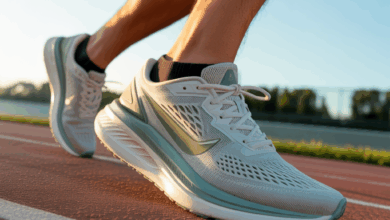What to Eat Before a Triathlon for Performance — Race Day Nutrition Guide

Have you ever stood at the start line, stomach fluttering, wondering if that bowl of oatmeal this morning was enough — or the wrong move entirely? Whether you’re lining up for your first sprint tri or aiming for a personal best in an Ironman, knowing what to eat before a triathlon for performance can be the difference between cruising and bonking.
Why pre-race nutrition matters
Nutrition in the hours and days before a triathlon fuels your muscles, stabilizes blood sugar, and affects how you feel mentally. Race-day meals are not magic — they’re the final step in a training cycle that includes practiced fueling strategies and lifestyle habits. Think of food as race-day equipment: you wouldn’t show up with untested shoes.
Key principles: what to eat before a triathlon for performance
1. Prioritize carbohydrates (but practice timing)
Carbohydrates top the list because they replenish glycogen stores — your primary source of high-intensity energy. Aim for moderate to high carbs in the 24–48 hours before longer events (carb-loading), and a focused pre-race carb meal 2–4 hours before start for shorter races.
- Choose low-fiber carbs for 2–4 hours pre-race: white rice, toast, bagel, oatmeal.
- For longer triathlons, add slightly more carbs in the 24 hours before the race: pasta, potatoes, rice bowls.
2. Moderate protein and low fat close to start
Include a small amount of easily digestible protein to preserve muscle (eggs, Greek yogurt, a scoop of protein powder) but avoid high-fat, greasy meals immediately before racing — they slow digestion and can cause GI distress.
3. Hydrate and replace electrolytes
Hydration starts days ahead. Sip plain water and use electrolyte drinks if you sweat heavily. In hot conditions, a sports drink with sodium 12–24 hours before the race can help maintain fluid balance.
4. Avoid risky foods and practice in training
Don’t experiment with new supplements, high-fiber salads, or spicy meals on race morning. Test your pre-race breakfast and mid-race gels during brick workouts or long rides so you know what settles well.
Sample pre-race meal plans by race distance
Sprint triathlon (approx. 20–60 minutes of total effort)
- 2–3 hours before: Toast with honey or jam, banana, small coffee (if you tolerate caffeine).
- 30–60 minutes before: A few bites of an energy bar or a small gel with water if you feel low on energy.
Olympic/half-ironman (2–6+ hours)
- 3–4 hours before: Oatmeal with a scoop of nut butter and sliced banana, or white rice with a little grilled chicken and honey.
- 30–60 minutes before: 20–30 g of carbs via a gel, chews, or a small sports drink.
- During: Plan 30–60 g carbs/hour for long efforts, more if intensity is high.
Ironman/long-course (6+ hours)
- 24 hours before: Focus on high-carb meals like pasta, rice, potatoes. Keep fats and fiber moderate.
- 3–4 hours before: Large carbohydrate-based breakfast — white rice or toast, honey, and eggs for protein.
- During: Practice a mix of liquid and solid carbs, aiming for 60–90 g carbs/hour using gels, chews, sports drink, and small snacks.
Practical tips and workout variations to coordinate fueling
- Brick workouts: Simulate race nutrition on a bike-run brick. Practice eating and drinking in the same cadence you’ll use on race day.
- Morning rehearsals: If your race starts early, train your gut to accept breakfast and caffeine at that hour.
- Gastrointestinal check: If you suffer from GI issues, reduce fiber and fat before long training and increase sodium if you cramp.
- Use real food: Whole-food options like bananas, sandwiches, and rice cakes often work better than novelty products for many athletes.
Real-world examples
– Sarah, an age-group triathlete, found that switching from a heavy muffin to a bowl of white rice and fruit reduced mid-race bloating and improved her bike power.
– Mark, a long-course racer, practices 90-minute bike sessions taking gels every 20 minutes to train his stomach for the race-day 60–80 g/hr plan.
Quick checklist for race morning
- 2–4 hours pre-race: Carb-focused meal low in fiber and fat.
- 30–60 minutes pre-race: Optional small carb snack (gel, chews) if needed.
- Hydration plan started 24 hours prior; sip electrolyte drink if hot.
- Pack spares: extra gels, a small sandwich, electrolyte tablets, and water for transition.
- Practice your plan in training to reduce surprises.
Frequently Asked Questions
A solid guideline is to eat a substantial, low-fiber carb-based meal 2–4 hours before the start. For very early races, shift the same meal earlier or use easy-to-digest options like a banana, white toast with jam, or an energy bar 60–90 minutes prior.
Gels and sports drinks are convenient and effective for in-race fueling, especially for long events. However, combine them with real-food meals before the race for better satiety and longer-term energy. Practice combining sources so your gut tolerates them together.
Carb-loading for a sprint is usually unnecessary. Instead, focus on a quality pre-race meal 2–3 hours before and small in-race carbohydrates if you need a boost. Save traditional carb-loading for events lasting several hours.
Conclusion — take control of race-day results
Deciding what to eat before a triathlon for performance comes down to smart carbs, practiced timing, hydration, and avoiding surprises. Treat your pre-race nutrition like a training tool: test it, refine it, and stick with what works. Want more structured plans? Check out our meal templates in the nutrition guides, and pair them with targeted sessions from our workout routines. For daily habits that support peak performance, browse our wellness tips.
Ready to dial in your race nutrition? Start by testing one change in your next long training session — and track how you feel. Then come back, refine, and race with confidence.
Call to action: Try the 3-day pre-race meal plan during an upcoming long brick workout and share your results with our community — your best race could be the one you fuel properly.





